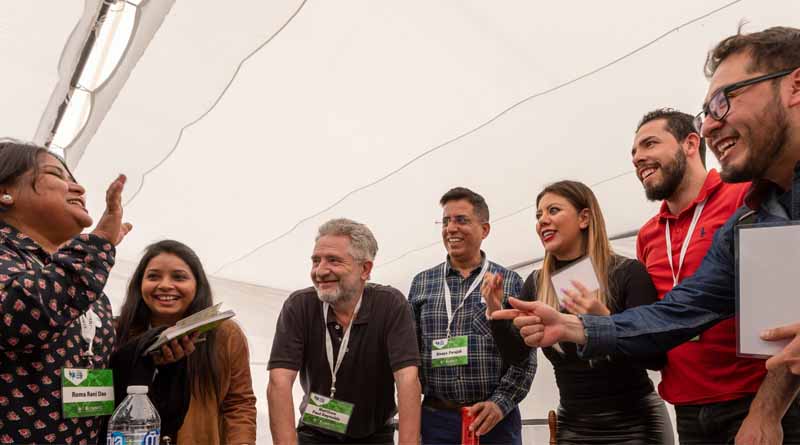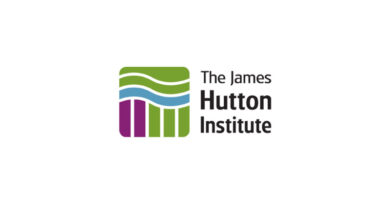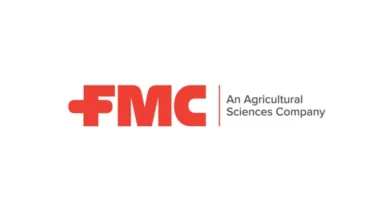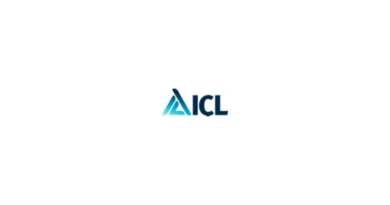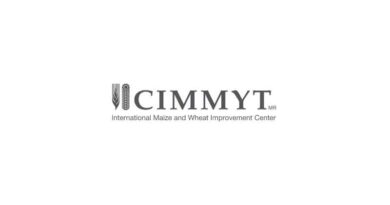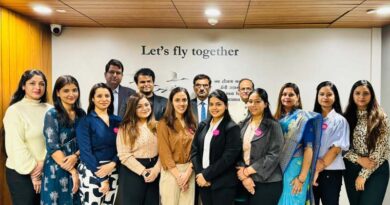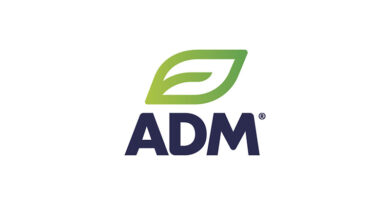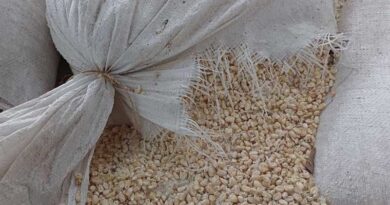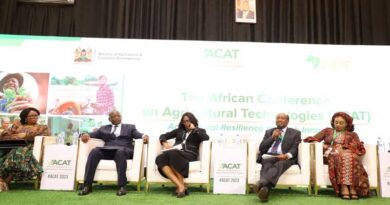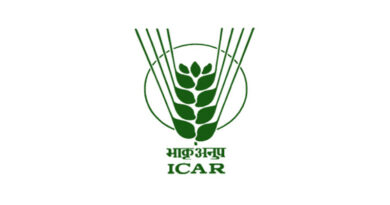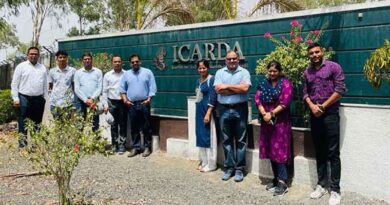A Sense of Belonging: Fostering Gender Equality and Social Inclusion in Agricultural Research
25 April 2024, Africa: Efforts to improve gender equality and social inclusion are under the spotlight in many workplaces around the world. At CIMMYT, where values of Excellence, Integrity, and Teamwork guide the organization through its 2030 Strategy, commitment to shaping a more inclusive workplace is changing the face of scientific research.
In alignment with the CGIAR Gender, Diversity and Inclusion (GDI) Action Plan for 2023-2024 to achieve gender parity goals, CIMMYT has implemented multiple initiatives to make improvements across its workstreams and geographical locations.
“This is the start of a journey to harness and empower talent from across CIMMYT’s employee base,” said Director General, Bram Govaerts. “Starting with the actions outlined below, CIMMYT aims to become a leader in promoting gender equality and social inclusion in agricultural research and development.”
Empowering women
At CIMMYT, our commitment to gender equality is reflected in our global workforce. During the first half of 2023, women represented one in every three staff members. Across all roles, the current hiring rate for women is 43% in 2023 compared to 21% in 2020, with a particularly positive trend in regional offices, where the percentage has increased from 24% in 2021 to 43% in 2023. Annual improvements are also visible in the number of internationally recruited female staff, as 46% of these roles are filled by women in 2023, compared to 19% in 2022.
In our headquarters in Mexico, there is no major gender gap above 10%, even at the highest level, and 35-40% of employees are women. 50% of the members of the senior leadership team are women, with a significant number of women from diverse backgrounds forming part of our broader management structure. Progress is also visible in our regional offices. In Kenya and Türkiye, 43% and 40% of team members are women respectively, with both countries reaching the CGIAR target of 40/40/20 parity. For the first time, women represented at least 20% of employees in Bangladesh and Nepal in 2023.
However, we recognize there are still areas where CIMMYT must improve gender parity. While the overall gender balance continues to improve, the proportion of women working at CIMMYT globally rests at 32.5%, which is a statistic that can be increased. Gender gaps exceeding 10% can be observed in India and Nepal, where efforts are bridging gaps and forming environments where talent knows no gender.
Advancing equality by region
The impressive diversity of our workforce is one of our greatest strengths, and CIMMYT always seeks new ways to champion its people. As a global organization with presence in 88 countries, benefits are tailored to each region to target the specific needs of employees in each locality.
- The creation of a Gratuity and Provident Trust Fund in Bangladesh, fostering gender equality by providing equal opportunities for financial stability and growth.
- Standardized benefits in India, such as a uniform transport allowance and upgraded housing allowance that ensures fair financial benefits for all employees regardless of job grade.
- Enhanced food coupons and savings funds for employees in Mexico, as well as an after-school program for the children of colleagues working at the headquarters.
- Responding to economic challenges in Pakistan with a 20% general salary increase, a bonus of US $400, and the introduction of a gender-neutral transport allowance.
- An increased allowance for children’s education in Zimbabwe.
In addition, Flexible Work Arrangements (FWA), parental leave, disability access improvements, and translation services showcase CIMMYT’s dedication to equality and inclusion.
Fulfilling careers for all
Investing in our people means ensuring that learning opportunities are equally accessible to all, empowering employees to reach their maximum capabilities. “We actively work to foster a culture and environment where all staff feel confident sharing their perspectives, their contributions are highly valued, and they see a path for growth within the organization,” said Deputy Director of Human Resources, Jean-Flavien Le Besque.
In 2023, 1,189 staff members participated in 431 training courses, with the number of participants increasing by nearly 23% in the same year. Additional e-learning opportunities available in both English and Spanish provide opportunities for professional development in health and safety, communications, personal efficiency, and critical thinking, all which aid staff with the development of valuable skills. These online courses supplement regular training on teamwork, hostile environment awareness, and diversity, equity, and inclusion.
The CIMMYT Academy also plays a significant role in training staff to be future leaders. In 2022, 52 students enrolled into the Academy; 52% of these students are women, underscoring CIMMYT’s commitment to developing everyone’s talent. Staff can also access a Tuition Grant scheme to pursue a higher-level degree.
Next steps
While these initiatives have strengthened gender equality and social inclusion at CIMMYT, further efforts are required to achieve true equity in all corners of the organization. These projects so far are just a glimpse into ongoing work to achieve the CGIAR GDI aims and will be built upon using employee feedback and specialist expertise.
“These successes are just the start of our pledge to ensure CIMMYT is inclusive and safe for all,” said Associate Scientist and Cropping Systems Agronomist, Mazvita Chiduwa. “We want to be an organization that is renowned not just for scientific excellence, but also for the way we champion all groups to reach the best of their ability, thrive in the workplace, and enjoy a positive work-life balance.”
(For Latest Agriculture News & Updates, follow Krishak Jagat on Google News)

